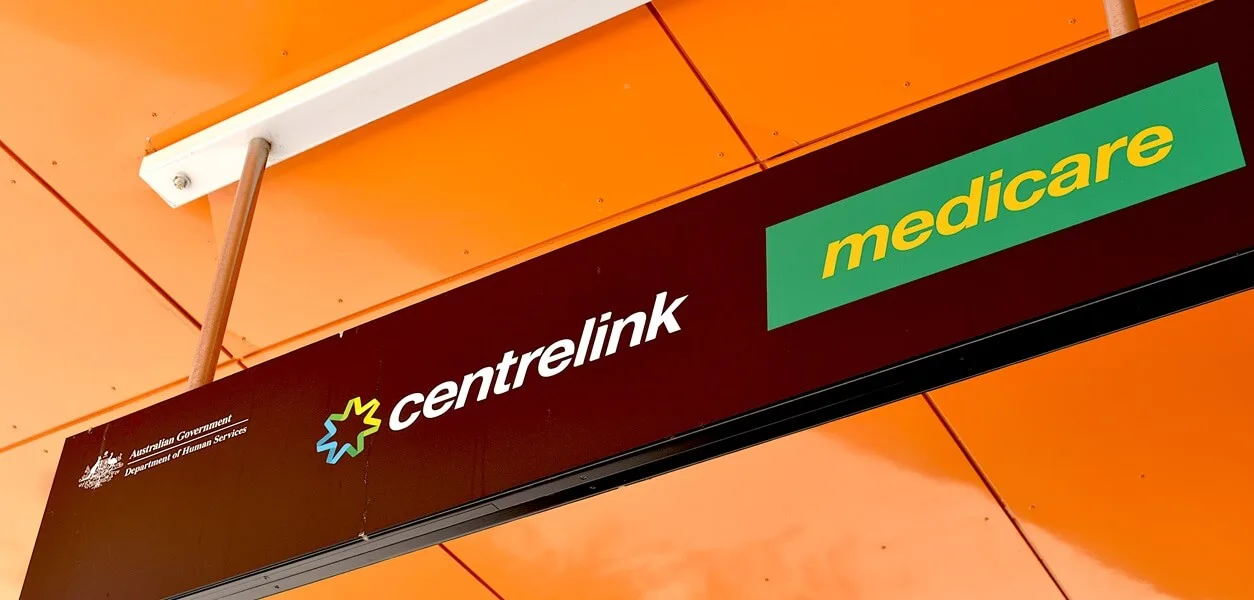
Avoiding costly Centrelink mistakes with expert advice from Retirement Essential’s Head of Customer Service, Steven Sadler
Navigating Centrelink rules can be challenging, and many retirees are unsure about their entitlements and how to apply. At Retirement Essentials, we see this confusion play out daily in the questions our members ask.
To shed light on common misconceptions and provide expert guidance, we spoke with Steven Sadler, Head of Customer Service at Retirement Essentials. Steven and his team answer thousands of queries every year, helping retirees to
- understand their Age Pension eligibility,
- submit their applications correctly, and
- avoid common mistakes that could delay or reduce their benefits.
Q&A with Steven Sadler
Q: What is one of the most common mistakes people make when applying for the Age Pension?
Getting the timing right.
Many retirees assume their Age Pension payments will be backdated automatically, but that’s not always the case. Centrelink only backdates payments to either the day you lodged your application or the day you became eligible – whichever is the most recent of the two.
That’s why it’s important to apply 13 weeks before you reach Age Pension age. And if you’re applying for the Commonwealth Seniors health Card (CSHC), be aware that its rules are different – there’s no backdating at all.
Q: What do people misunderstand about the Commonwealth Seniors Health Card (CSHC)?
One of the biggest surprises? How Centrelink calculates income for the CSHC.
It uses a different means test to the Age Pension, and has no asset thresholds – only an income threshold applies.
One of the documents used to assess income for the CSHC is a tax return. Understandably, retirees often assume the taxable income they reported to the ATO will be the same for a Centrelink assessment, but Centrelink uses its own adjusted income test.
For example – and this list is not exhaustive:
- Account-Based Pensions (ABPs) are deemed – regardless of what you are actually drawing as an income from the ABP.
- Net Investment losses aren’t deducted as they are for tax purposes.
- Net rental property loss is added back to the person’s taxable income to determine their assessment of income for CSHC.
- Salary Sacrifice contributions do count as income even though they have been contributed to a superannuation account.
Q: Which Centrelink rules catch people out the most?
Not being prepared!!!
Failing to assemble all the necessary documents – including tax returns, superannuation statements, and financial records – before they even start their application. Centrelink won’t officially consider your claim until all the required documents are submitted, meaning delays can significantly push back your eligibility date.
Overvaluing assets
Centrelink requires you to list assets at their current market value if you were to resell them – not their insured or sentimental value. This means:
- Home contents are typically valued between $10,000 to $30,000.
- Cars should be listed at trade-in value, not what you originally paid.
Overestimating these values can reduce your Age Pension unnecessarily.
Old records
Having an old Centrelink Reference Number (CRN) or outdated superannuation records can lead to delays in processing your claim. It’s always best to double-check your details before applying.
Q: What’s one of the biggest wins you’ve helped a customer achieve?
Our greatest success comes from preventing problems before they start. Each time we assist a customer in making a successful application for either the Age Pension or the CSHC, we are winning because we are helping them navigate the system and avoid the pitfalls.
Some cases stand out more than others. Recently I helped a customer who had applied for the Age Pension four times and was denied each time. They believed their income and assets were below the thresholds, but had been told otherwise by Centrelink. When we spoke with them we picked up that actually they were still within a preclusion period due to a previous compensation payment, making them ineligible until 2026.
Although disappointed, they appreciated finally getting a clear explanation, saying it was the “best $150 they’d ever spent”.
Q: What’s your best advice for someone unsure about their entitlements?
Applying for the Age Pension isn’t like doing your tax return each year. For most people, this is a one-time application, and the system is unfamiliar.
My best advice is to be prepared
- Use the Age Pension Entitlements Calculator to get a quick estimate of what you’re eligible for.
- Book an entitlements consultation to check your details before applying.
- Get your documents ready – the more prepared you are, the smoother the process will be.
At the end of the day, your goal is to prove your eligibility – and the best way to do that is by making sure every aspect of your application is correct the first time.
How to Maximise Your Entitlements
Many retirees miss out on benefits simply because they don’t know what they’re eligible for or how to apply. Retirement Essentials offers tailored support to help you navigate the process:
Use the free Age Pension Entitlements Calculator to get a quick, confidential snapshot of what you may be entitled to.
Book a consultation with a Retirement Essentials specialist – Whether you need help applying, checking eligibility, or understanding how to maximise your benefits, we’re here to guide you.
Stay informed – Centrelink rules change regularly. Sign up for the Retirement Essentials newsletter to get expert insights and explanations straight to your inbox.
What about you?
Have you encountered any unexpected challenges when applying for the Age Pension or CSHC? How did you resolve them?
What’s one piece of advice you wish you had known before dealing with Centrelink?






Methinks it’s criminal that CentreLink are blatantly allowed to change &/or bend even basic accountancy rules. Salary sacrifice not contributed to super? Never mind, we’ll view it as income to reduce your pension. Same rules apply to depreciation if you’re daft enough to still have a business. ATO may allow you 100% depreciation, but we’ll only give you 10, so your deemed taxable income will allow us to pay you less.
I’m uncertain about the valuation given to my vehicles.
A good place to get a fair valuation on your car is to go to the the Redbook.com website.
Use the details on your Rego. Certificate to get the correct make and model and year of your car.
Redbook will tell you what your car is worth to sell or trade.
Use the sell valuation.
It is listed as a range. If your car is low km then choose the highest valuation, and if greater than 15,000km per year since new use the low valuation.
Hi, you say “ it’s important to apply at least 13 weeks before you reach Age Pension age”. So what is the maximum time I could apply? Eg. Could I apply 20 weeks beforehand?
Cheers Evan
Hi Evan, thank you for highlighting the typo, 13 weeks is the maximum time you can lodge a claim early with Centrelink so we’ve amended the wording.
Yes I love Centrelink and their system …NOT Still no go on the application after 12 months and still jumping through hoops .. I mentioned previously as the problem seem to be number one having and old company and family trust still registered after 20 years of no use . As previously stated so as to get travel insurance using your ABN as once over 80 you are in trouble.
Then living in a commercial building and renting out the downstairs ? Now they want the valuer in to assess the part being rented ? Like this is my home of 20 years and the tenant is about to move out so maybe complete the application when the tenant moves and therefore save some issues. How does anyone get a part pension let alone a full pension for the ONE DAY ? yes enjoy the newsletter
I am living in the Philippines due to the cost of living in Australia!
I have just been told by Centerlink that my pension has been reduced by $250/F.N. as I have been out of Australia for more than 26 weeks!
According to Centerlink figures I should earn $27,900/annum!
There is no mention of this lessor amount!
Is this correct?
Hi Barry, yes this is correct. You can learn more about Centrelink’s rules regarding travelling and/or living overseas HERE.